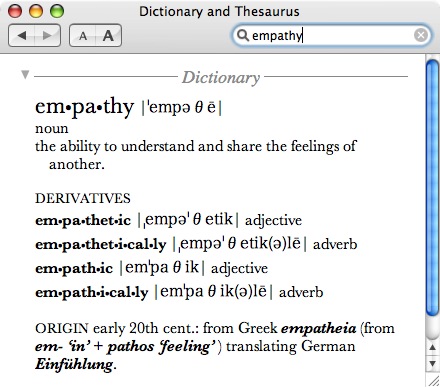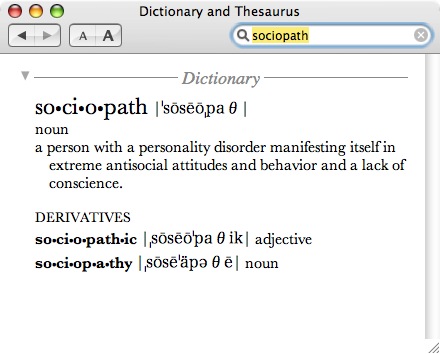The Problem with Borat
03/08/2007 09:41 Filed in: Movies and Television
I know that the cultural elites love this movie. After looking at some opinions about the movie this morning, I've come away with this consensus summary: (they say) If you get the satire, you're hip and enlightened; if you're offended, well, you must be as hopelessly ignorant as the targets of Borat's (or Sacha Baron Cohen's) gags.
Whatever.
Last night Kathy and I rented Borat. The advertisements make it look quite funny and very clever. How will American people react to a "foreigner" who is culturally and socially naive to our assumed social norms? Now we should have known better. We knew that it was Rated R, but we thought.... well, I don't know what we thought. We just should have known better. We watched quite more than we should have and finally stopped the movie after viewing part of what had to have been the crudest scene I've ever seen in a mainstream movie (and, yes, Borat would have to be considered mainstream with the backing of 20th Century Fox).
 To me, however, the problem with Borat is not the crudeness or the feigned racism (although these are significant issues). Rather, the main problem is a lack of empathy toward the victims of his gags. I can only imagine how humiliated some of Cohen's foils must feel knowing that their family and friends, people who interact with them in their communities see them being made such fools of on a national (even international) level. This is not Candid Camera fare, but it certainly makes you miss Allen Funt. This is not even Punk'd or Jamie Kennedy Experiment material. In the latter two television shows, the targets generally laugh at the end when they find out they've been duped. Not so with Cohen's victims--they sue! And who could blame them?
To me, however, the problem with Borat is not the crudeness or the feigned racism (although these are significant issues). Rather, the main problem is a lack of empathy toward the victims of his gags. I can only imagine how humiliated some of Cohen's foils must feel knowing that their family and friends, people who interact with them in their communities see them being made such fools of on a national (even international) level. This is not Candid Camera fare, but it certainly makes you miss Allen Funt. This is not even Punk'd or Jamie Kennedy Experiment material. In the latter two television shows, the targets generally laugh at the end when they find out they've been duped. Not so with Cohen's victims--they sue! And who could blame them?
 This is a golden rule issue. I wouldn't want to set someone up to look stupid or backward because I wouldn't want that done to me. The humor in Borat is more than just crude; at times, it's cruel. And both elements can be distasteful. When someone displays an ongoing lack of empathy, we suggest that the person is a sociopath. Is Borat what we've come to? Has our culture become so hardened against the idea of caring how the victim of a gag feels that we resort to sociopathic comedy?
This is a golden rule issue. I wouldn't want to set someone up to look stupid or backward because I wouldn't want that done to me. The humor in Borat is more than just crude; at times, it's cruel. And both elements can be distasteful. When someone displays an ongoing lack of empathy, we suggest that the person is a sociopath. Is Borat what we've come to? Has our culture become so hardened against the idea of caring how the victim of a gag feels that we resort to sociopathic comedy?
 A few days ago, I saw one of the movie's producers interviewed on a morning talk show. When asked about the lawsuits from those made to look stupid in the movie, he simply said that all the waivers which they had signed were legally airtight. Further, he said that at the movie's release the lawsuits resulted in serious news stories written about the controversy over the movie. The producer seemed giddy with his own cleverness and all the free publicity Fox had received. But never once did he show any concern about the foils in the movie or any humiliation they had suffered. All that the producer cared about was the secure legality of his situation. However, from what I read, with the exception of the scenes that were clearly staged, the "participants" in this movie were told that they were actually taking part in a Kazakhstan documentary. I have no idea what the fine print of the waivers said, but I'm sure it was worded with the studio's best interests in mind, not the participants. Legality does not always equal ethicality and this is case in point. The lesson, no doubt, is to always read the fine print before you sign anything.
A few days ago, I saw one of the movie's producers interviewed on a morning talk show. When asked about the lawsuits from those made to look stupid in the movie, he simply said that all the waivers which they had signed were legally airtight. Further, he said that at the movie's release the lawsuits resulted in serious news stories written about the controversy over the movie. The producer seemed giddy with his own cleverness and all the free publicity Fox had received. But never once did he show any concern about the foils in the movie or any humiliation they had suffered. All that the producer cared about was the secure legality of his situation. However, from what I read, with the exception of the scenes that were clearly staged, the "participants" in this movie were told that they were actually taking part in a Kazakhstan documentary. I have no idea what the fine print of the waivers said, but I'm sure it was worded with the studio's best interests in mind, not the participants. Legality does not always equal ethicality and this is case in point. The lesson, no doubt, is to always read the fine print before you sign anything.
Granted, Cohen is a master at bringing out America's deep-rooted prejudices that sadly still exist among some individuals in our country. But not all of his targets reflect this, and frankly I feel sorry for them. Maybe it's easier to laugh at a racist making an idiot out of himself, but does that make it right? And even though we in the audience are in on the gag, are Cohen's feigned racist statements really fodder for comedic material? Do we go ahead and laugh at racism and prejudice if we know the person saying it doesn't really mean it? Does that make it any less of an issue?
One particular scene involved Borat at a very proper, Southern, dinner party. This scene has been shown on television quite a bit. What I didn't know until viewing part of the movie is that the gentleman sitting at the right end of the table is a minister. Even after Borat rudely insults his wife, he acts annoyed, but charitable (much more so than I imagine I would have). The final straw for him is when the prostitute arrives to the party whom Borat has invited. Oh, I know that some might criticize and remind us that Jesus was not afraid to socialize with "sinners" of all varieties. But Jesus, although often set up to look bad by his enemies, never found himself in no win situations. At the dinner party, no one was going to win anything other than Cohen who was orchestrating the entire event. In reality, I was impressed that the minister never said an unkind word. He simply stood up and said something to the effect of "It was nice to meet you, but I must be excused now."
After watching a few minutes more, Kathy and I came to the same conclusion.
Whatever.
Last night Kathy and I rented Borat. The advertisements make it look quite funny and very clever. How will American people react to a "foreigner" who is culturally and socially naive to our assumed social norms? Now we should have known better. We knew that it was Rated R, but we thought.... well, I don't know what we thought. We just should have known better. We watched quite more than we should have and finally stopped the movie after viewing part of what had to have been the crudest scene I've ever seen in a mainstream movie (and, yes, Borat would have to be considered mainstream with the backing of 20th Century Fox).



Granted, Cohen is a master at bringing out America's deep-rooted prejudices that sadly still exist among some individuals in our country. But not all of his targets reflect this, and frankly I feel sorry for them. Maybe it's easier to laugh at a racist making an idiot out of himself, but does that make it right? And even though we in the audience are in on the gag, are Cohen's feigned racist statements really fodder for comedic material? Do we go ahead and laugh at racism and prejudice if we know the person saying it doesn't really mean it? Does that make it any less of an issue?
One particular scene involved Borat at a very proper, Southern, dinner party. This scene has been shown on television quite a bit. What I didn't know until viewing part of the movie is that the gentleman sitting at the right end of the table is a minister. Even after Borat rudely insults his wife, he acts annoyed, but charitable (much more so than I imagine I would have). The final straw for him is when the prostitute arrives to the party whom Borat has invited. Oh, I know that some might criticize and remind us that Jesus was not afraid to socialize with "sinners" of all varieties. But Jesus, although often set up to look bad by his enemies, never found himself in no win situations. At the dinner party, no one was going to win anything other than Cohen who was orchestrating the entire event. In reality, I was impressed that the minister never said an unkind word. He simply stood up and said something to the effect of "It was nice to meet you, but I must be excused now."
After watching a few minutes more, Kathy and I came to the same conclusion.









